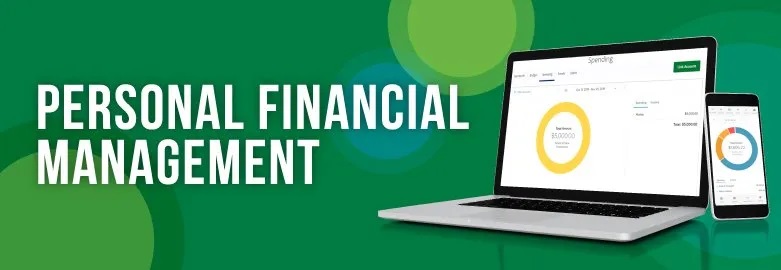Sports
Risk Management Practices by Australian iGaming Companies

Managing a business’ finances is key to its sustainability and success, and that includes casinos. These platforms deal with large cash transactions daily, which makes them potential targets for fraud or other malicious schemes.
Thankfully, there’s a way out: applying proper risk management. This guide discusses common financial risks and best practices for mitigating them in the gambling industry.
Identifying the Essential Financial Factors
In the $150 billion gaming sector, casinos may encounter certain threats that can harm their operations. The table below identifies key aspects affecting a platform’s reputation and longevity.
| Aspect | Description |
| Regulatory compliance | The regulations imposed by gambling authorities can be challenging to follow. |
| Operational risks | System failures, human errors, and technical issues can disrupt gambling operations and lead to revenue losses. |
| Market dynamics | The change in consumer behavior or unstable economic environment significantly impacts the financial stability of casino platforms. |
| Reputation | Potential regulatory breaches may hurt a casino’s reputation, subsequently leading to the loss of customer trust and reducing revenue. |
Key Approaches to Minimizing Financial Risks
These risks mentioned in the preceding section are prevalent in many platforms today. Without proper strategies to combat them, they can cause more harm to financial operations. Thus, gambling sites should implement various mitigation strategies to safeguard against these threats. These approaches are summarized in the table below.
| Key Approaches | Measures to Take |
| Fraud detection systems | Platforms leverage advanced tech like Artificial Intelligence and machine learning systems to detect and prevent fraud.
Also, real-time monitoring and transaction analysis can help identify suspicious patterns and take immediate action. |
| Strict regulatory compliance | Casinos can establish a dedicated compliance team to ensure adherence to relevant laws and regulations. Regular audits and training programs help mitigate any risk associated with regulatory breaches. |
| Operational controls | They can implement segregation of duties and secure IT infrastructure to reduce the chances of operational damage. Backup systems and disaster recovery plans should also ensure business continuity. |
| Market risk management | Casino operators can diversify revenue streams and stay ahead of market trends to adapt to changing economic conditions. Planning can help anticipate and mitigate market risks. |
| Reputation management | Operators should strive to maintain transparency, ethical practices, and effective communication to help preserve their reputation. They should also address technical and financial issues to mitigate the impact of reputational damage. |
Best Practices from Successful Casinos in Managing Banking-Related Risks
Accessing and managing risks is no easy feat in the gambling landscape. Yet, with best practices, many casinos worldwide and Australia’s casino brands specifically have successfully managed banking-related risk. Reputable casino sites seeking to improve their operations can adopt the following methods.
Integration of Risk Management Framework
A management framework should integrate risk assessment, monitoring, and mitigation processes across all organisational levels. This framework will ensure that dangers are identified and addressed proactively.
Collaboration with Financial Institutions
When operators establish strong relationships with banks and financial institutions, they can quickly detect and prevent money laundering or fraud-related transactions. Regular communication and information sharing are vital to this collaboration.
Employee Training and Awareness
Casinos should enforce regular employee training programs on fraud detection and regulatory compliance. These courses can help staff identify and mitigate issues affecting their operation and workflow. Operators should also cultivate a culture of vigilance and accountability on all levels.
Third-Party Audits and Assessments
Many gambling platforms, especially casinos offering hefty jackpots, should engage external auditors to assess risk management practices. These unbiased audits help identify gaps and areas for improvement in casino operations.
Ensuring Financial Stability and Integrity in the Casino Industry
Effective risk management can help ensure the stability and integrity of the casino industry. Operators can secure their operations and build customer trust by identifying common financial dangers and implementing mitigation strategies.
In addition, they can adopt efficient practices from other iGaming sites to improve their risk management efforts and create a secure gaming environment for all. As the industry grows, improving and adopting new practices that can protect casino operations long-term is essential.
Sports
When Weather Hijacks Betting Odds

Weather conditions such as rain, wind, snow, or extreme heat could have an impact on the nature of both teams’ style of play, the way that goals might happen, and the way they are priced by bookmakers like 1xbet. Therefore, in recent years, the weather has been seen as one of the quickest, non-visible influences on wagering and gambling.
In the final hours leading up to a game, many individuals who wager money will either check the weather or look to confirm it has been altered before they access the relevant sites to wager on the game. The result is often that there has been a change in price immediately after the event has been confirmed. There is no requirement for a weather press conference to take place, as weather conditions will dictate when to make price adjustments.
Mobile alerts make weather-driven moves faster
Modern weather surprises spread instantly in modern betting with radar images on social media; waves of bets have begun flooding in before even national broadcasters are reporting current weather conditions. The overwhelming influence of weather bets is multiplied by players being able to place their wagers using mobile devices, as they are able to follow thick and thin markets by paying close attention to their mobile betting devices via 1xbet apk, to be ready and able to react immediately when weather-related news breaks. When rain starts to come down heavily or winds start to pick up, bettors adjust their expectations and place bets on things like totals, corners, and/or cards, respectively.
The fact that bets can be processed and accepted instantly when betting with mobile devices provides tremendous value and importance to how pre-match odds can be pushed up and down quickly, even though the movements in pre-match odds may have been created with only a small portion of the total stake being made by the total number of bettors.
Why wind and rain hit the goal markets first
Players from getting enough distance on long balls, which can cause problems with crossing the ball. Heavy rainfall can affect pass accuracy and create unexpected deflections due to players slipping or losing their footing. High temperatures can affect the pace of play and increase fatigue.
Bookmakers commonly will alter goal-related markets first when weather has a significant impact on shot quality and chance conversion. If the pitch is heavy, teams may be able to create attacking chances but not be able to finish them. Strong winds can disrupt how set pieces are taken, which makes them unpredictable.
Typical types of weather effects that drive odds adjustments include:
- strong wind reducing the accuracy of crosses and long shots;
- heavy rain reducing pace of play and increases slips, getting muddy pass accuracy and less cleanly taken.
- waterlogged playing surface, creating difficult passing;
- very high temperatures causing slower second halfs;
- and cold weather reduces stamina and touch.
These elements affect total point spread lines and sometimes also point spread lines in instances where either team is using more of a certain style of play.
How odds shifts look when the forecast changes
Weather-based movement often follows a recognizable sequence: forecast update, market pause, then adjustment. It can happen in minutes.
| Weather shift before kickoff | What bettors expect | Where odds usually move |
| Wind picks up sharply | Fewer clean chances | Under goals shortens |
| Heavy rain starts | Slower play, more mistakes | Totals and corners adjust |
| Heat wave confirmed | Lower tempo late | Second-half totals drift |
| Sudden storm warning | Match may stop or delay | Markets suspend briefly |
| Pitch declared heavy | Physical game, fewer patterns | Cards and unders tighten |
The public reacts late, the market reacts early
Oddsmakers adjust the line in their favor before the average bettor has even thought to make a wager on a particular matchup. Many recreational players are betting based on team name and recency—weather is an afterthought, if that at all.
Trained bettors will typically make their move much earlier in the process by being tuned into the weather forecast and any stadium information. Once they get their money in early, the oddsmakers adjust the odds and the recreational players will wager at a different price.
That’s why the weather has such a huge ability to create a “pre-match surprise”; it can quickly change assumptions and betting markets are based on assumptions.
Smart ways to handle weather-driven chaos
The weather offers chance and also risk. Quick checklists come in handy when making smart choices:
- Check the current market movement before betting on a new weather event.
- Don’t accept forecast headlines generally; look back for context.
- Assess style of play: crossing the touchline, tempo, and physical size.
- Don’t rely solely on morning weather updates; check late changes to match timing as well.
- Be cautious when betting on the live market after the weather created chaos.
The forecast does not match, but the forecast could create a change to the match, which can createa change to the odds.
Weather is not background noise anymore
Today’s weather plays a major factor in today’s gaming and gambling markets. Weather conditions can completely alter game pace and a gambler’s approach to betting. Many times, sportsbooks have to adjust pricing for an entire section of the board at the last minute due to these changing weather patterns.
The important piece is understanding the reasons behind odds movement in order to take advantage of them rather than just noticing they have moved. As weather conditions change at the end of a sporting event, the betting market is reacting to uncertainty, and when uncertainty increases, the odds do not typically remain as displayed on the betting screens.
Sports
Golf Training, Tournament Hold March 8 in Warri North

By Henry Ovie
A one-day golf training and tournament specifically for girls has been fixed for Sunday, March 8, 2026, in Koko, in the Warri North of Delta State.
A statement from the organisers of the event, Canaan Land Golf Training and Tournament, disclosed that about 50 girls would be accommodated.
Tagged The Biggest Giving Day of the Year, the programme, according to the chief executive of Akogate Group, Mr Felix Aganbi, will entrench the attitude of excellence and develop young, highly quality golfers in terms of their golf quality and personal character.
He urged parents in Nigeria and abroad to allow their daughters to attend the event, saying it will build their confidence.
“The golf training and tournament will introduce girls to golf in a social and engaging environment. It will also help them build confidence, learn vital skills, and connect with others in a friendly community,” he was quoted as saying in the statement on Thursday.
The programme, which will take place at the Canaanland Golf and Country Club, celebrates the social, economic, cultural and political accomplishments of women as well as raises awareness for accelerated gender parity
“Open to girls in years 8-16, the training and tournament provide high-quality coaching to assist the girl child in pursuing excellence in the sport of golf,” Mr Aganbi noted, listing technical skill development, comprehensive fitness and mental conditioning as key features of the training.
“The girls will learn the basics of golf grip, stance, posture alignment, golf rules and etiquette. They will also be taken for an 18-hole playing lesson.
“The training and tournament will broaden opportunities for girls in Nigeria to realise their potential through education.
“Canaanland Country Club shall continue to encourage the education of females, improve the economic position of women and enhance their participation in matters relating to both the family and the society.
“It is also to join hands with the government in making our state a better place to live, campaign for the dismantling of systemic barriers and push for the power of reciprocity and abundant giving,” he disclosed.
Driven by Sir Alfred and Mrs Warami Temile, Mr Aganbi said the “club would continue to provide necessary assistance for the general development of people, especially those who live in the rural areas.”
In a related development, Mr Aganbi said the Oluremi Tinubu Golf Classic would take place on Saturday, April 25, 2026, at Canaanland Golf and Country Club, Koko.
“The tournament will attract international talent, create opportunities for emerging players and motivate the next generation to see what is possible in the women’s game,” he stated, adding that over 75 women are expected to participate.
The event is another important step in strengthening the women’s game in Nigeria, delivering significant benefits to the Niger Delta, drawing women, officials and fans to Warri North and boosting tourism and hospitality industries in Delta State.
Sports
Access Bank Lagos City Marathon Top 10 Finishers Share N10m from Aquafina

Aquafina took centre stage at the 11th edition of the Access Bank Lagos City Marathon on 14 February 2026, rewarding the first ten groups to complete the 10-kilometre race with N1 million each. The initiative highlights the brand’s continued investment in fitness, wellness, and the spirit of collective achievement within Nigeria’s growing running community.
Under its campaign theme, “Run am with your Padi of Life,” Aquafina encouraged runners to participate alongside friends, teammates, and running crews, celebrating the role of support systems in pushing limits and sustaining performance.
Throughout the race, Aquafina ensured strong on-course visibility while providing hydration support to help participants maintain energy levels. Its on-ground activations added excitement for both runners and spectators, contributing to the vibrant atmosphere of the event.
By rewarding groups rather than individual runners, Aquafina spotlighted the value of shared goals and mutual accountability. The N1 million prize elevated the competitive energy of the 10km race while reinforcing the importance of collaboration within Nigeria’s evolving fitness culture.
Widely regarded as one of West Africa’s most prestigious road races, the marathon once again attracted elite athletes, recreational runners, corporate teams, and fitness enthusiasts from across the country and beyond. Within this high-energy environment, Aquafina positioned itself as a trusted hydration partner supporting endurance and peak performance.
Speaking after the race, Funso Elubeku, Assistant General Manager at Seven-Up Bottling Company (SBC), said:
“The Access Bank Lagos City Marathon represents resilience, discipline, and the power of community. Through Aquafina, we ensured participants remained hydrated while celebrating the teamwork and support that helped runners push beyond their limits. Rewarding the first ten finishers underscores our commitment to recognising dedication, performance, and personal achievement.”
Aquafina’s presence at the marathon underscores its broader mission to promote active lifestyles and support platforms that inspire healthier living, strengthening its connection with Nigeria’s fitness community through meaningful engagement.
-

 Feature/OPED6 years ago
Feature/OPED6 years agoDavos was Different this year
-
Travel/Tourism10 years ago
Lagos Seals Western Lodge Hotel In Ikorodu
-

 Showbiz3 years ago
Showbiz3 years agoEstranged Lover Releases Videos of Empress Njamah Bathing
-

 Banking8 years ago
Banking8 years agoSort Codes of GTBank Branches in Nigeria
-

 Economy3 years ago
Economy3 years agoSubsidy Removal: CNG at N130 Per Litre Cheaper Than Petrol—IPMAN
-

 Banking3 years ago
Banking3 years agoSort Codes of UBA Branches in Nigeria
-

 Banking3 years ago
Banking3 years agoFirst Bank Announces Planned Downtime
-

 Sports3 years ago
Sports3 years agoHighest Paid Nigerian Footballer – How Much Do Nigerian Footballers Earn





















